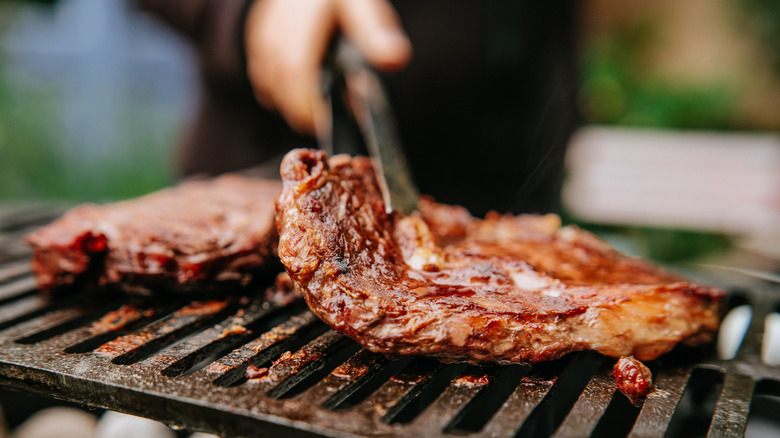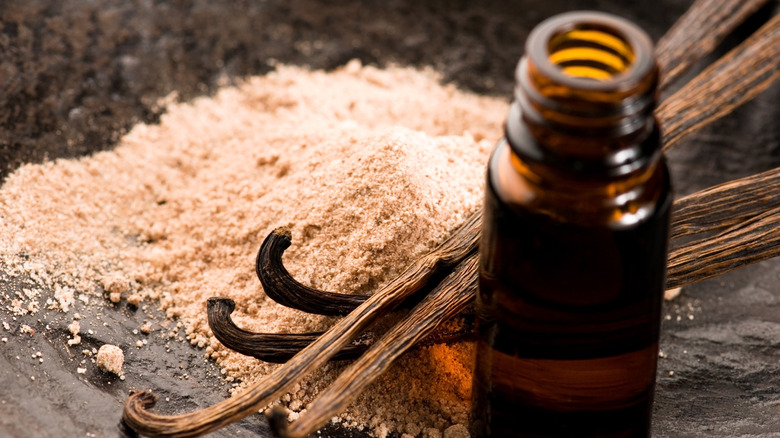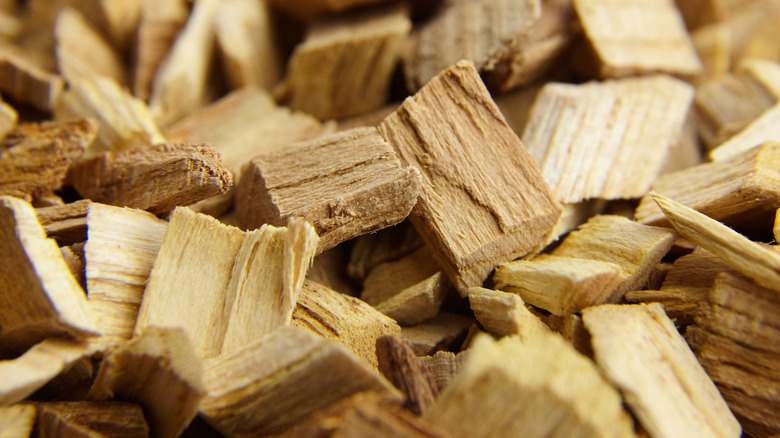Vanilla Is The Unusual Way To Make Barbecued Meat Drool-Worthy
Barbecue is a beloved American tradition; there are, after all, no fewer than 18 popular BBQ chains in the U.S. currently. But many people choose to forego the restaurants and make it in their own backyards, in a variety of styles, typically named after the region from whence they came. If you love to create your own barbecue, you've likely experimented with different meats, woods, and rubs, but have you ever thought to incorporate vanilla? According to chef and author Sean Martin, "Adding a sweet and savory element to your seasoning," he explained, "especially with kosher salt, is magic..."
It might sound a little wild, but you use maple syrup and honey as sweet flavorings with your barbecue — so why not vanilla? Said Martin, "It will make your guests ask what is in that seasoning to make it so good." However, he cautioned, "Avoid using vanilla bean or any vanilla that retains moisture in a dry rub, even if labeled dry. It will cake up and make the rub more difficult to apply evenly to your meat. Instead, opt for dried vanilla bean powder."
How to incorporate vanilla into your barbecue
Pork is really your barbecue meat go-to when it comes to using vanilla, with Sean Martin stating that he adds "vanilla to any pork cut, from pulled pork to the thickest pork chops." You might also use pork butt as it's a fattier cut of the meat, which is great if you're a barbecue beginner. He continued, "Pork elevates in flavor when you add a sweet element." A good combination of spices for a rub might include vanilla bean powder, chili, onion, and garlic powder, and some high-quality smoked paprika.
If you don't have vanilla bean powder on hand, Martin stated that you can use vanilla bean or paste instead, and "...it makes a great addition to glazes applied at the end of the cooking process, or to incorporate into a marinade." You can also use vanilla extract if that's what is in your pantry.
Vanilla complements savory ingredients like Dijon mustard and Worcestershire sauce, and then brown sugar can help bring out the sweetness, so consider using those for your glaze or marinade. Play around with different sauces or spices, or consider using even a fiery shot of bourbon to add even more depth. And you can't go wrong with a bit of heat. Martin suggested, "Vanilla also complements well with cayenne pepper adding a sweet and heat element"
Picking the right wood for your vanilla-flavored barbecue
Of course, not all the flavor from barbecue comes in the meat, seasonings, or sauces; tastiness can also be imparted in the smoke, which comes from the wood you use to cook the meat. Luckily, Sean Martin also accounted for this. "Use the more delicate and sweeter fruit woods like apple, cherry, or citrus woods," he advised. "They add a lighter smoke flavor that complements vanilla." They are also best for pork, which is, of course, Martin's first choice of meat for pairing with vanilla.
If you don't have that, he made another suggestion: "Milder woods like hickory, pecan, or hazelnut [even though] these offer slightly stronger smoke flavor profiles." They aren't as light as fruit woods, but they still won't overwhelm the delicate sweetness of the vanilla. What Martin does not recommend, however, are post oak or mesquite, as these will completely overpower the nuance of any vanilla flavor you might have included in the rub, marinade, or glaze. Mesquite, in particular, is intense and is better when paired with more robust cuts of meat, like beef (brisket, to be sure) rather than pork.



